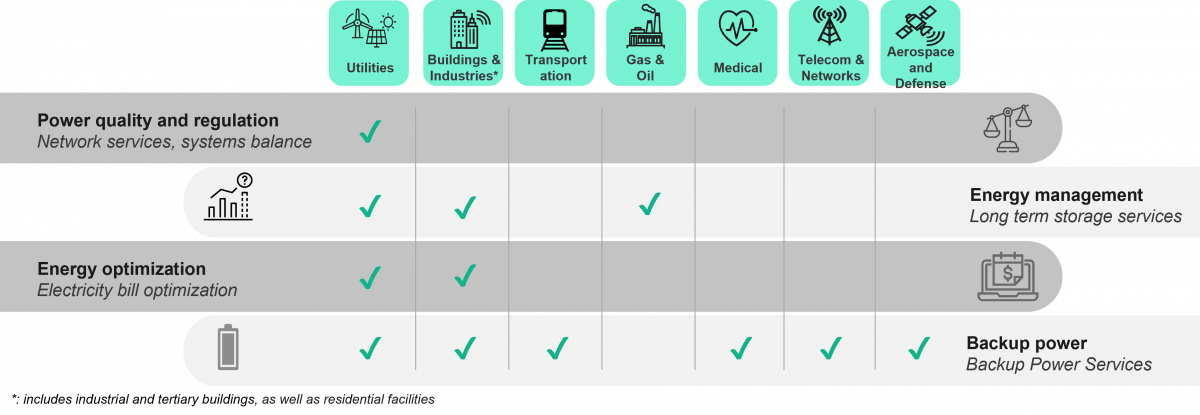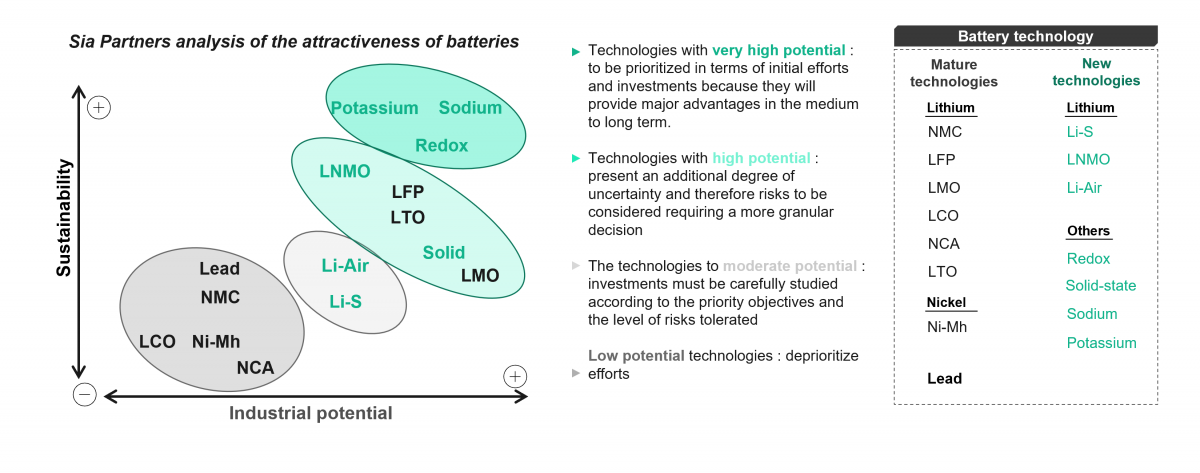Control Room of the Future

Developing battery electricity storage systems (BESS) is crucial to secure the energy transition by bringing flexibility and stability to electricity grids. It also drives innovation and new applications in several sectors which are set to adapt their industrial activities.
Our study on stationary batteries explores the different battery technologies and associated materials. Sia Partners draws on its sectoral expertise to provide a global overview of the stationary battery storage market.
As renewable energies are booming, the global demand in BESS has accelerated. Electricity storage has become a major and strategic issue to secure continuous distribution of energy to consumers. Batteries offer a solution to offset the fluctuations of renewable energy sources, therefore enhancing grid flexibility and stability, and contributing to a more resilient and sustainable energy mix.
Stationary batteries have applications beyond the electrical network. They can be utilized in residential, commercial, and industrial settings, enabling local energy storage, and promoting energy independence. There is still room for innovation, in terms of durability, cost, efficiency… Innovation paves the way for new applications and further progress in all sectors.
Stationary batteries offer a wide variety of use cases that meet the diverse needs of various industrial and residential sectors:

The number of stationary battery storage systems (BESS) installations is set to rise sharply over the decade, with an acceleration in 2023, when additional installations almost doubled compared to the previous year.
Lower costs, favorable public policies and the gradual emergence of regulations are the main drivers behind the acceleration of BESS, which increasingly have access to new sources of revenue in the electricity and ancillary services markets.
By 2026, installed capacity for stationary batteries will have increased 3-fold, mainly thanks to China.

Stationary battery storage requirements will increase demand for materials by a factor of at least 14 by 2040.
According to the IEA, growing demand will outstrip supply capacities for critical materials (lithium, nickel, cobalt) as early as 2030. Substantial additional investment will be needed to meet demand. Against this backdrop of tension, too rapid a deployment of Li-ion batteries, which depend on these metals, could complicate the global energy transition.
Solutions must therefore be found to overcome these supply tensions. Material substitution seems to be the most effective approach.
We have therefore analyzed Durability and Industrial Potential as the two main axes for defining the attractiveness of a battery in the current context of energy transition, broken down into 7 criteria:

Our analysis highlights several attractive technologies:

We recommend prioritizing mature LFP and LTO batteries, using only lithium as a critical material, as well as the new Sodium and Redox batteries, and over a longer period Potassium batteries.
These new technologies will enable the stationary storage market to develop without the risks and constraints associated with the supply of critical materials.
We help our energy, resources & utilities clients respond to opportunities by offering a comprehensive range of services spanning the entire BESS lifecycle; from sourcing to design and implementation.
Analysis and evaluation of major market trends and opportunities
Definition of strategic and R&D roadmaps and prioritization of actions
Support for investment operations
Implementation of a regulatory watch by country
Identification of flexibility needs in a given territory
State of play of stakeholders and benchmark of competing commercial offers
Construction of offers: definition of targets, content, costing
Support for the evolution of the company's image, with our digital agency
Support for the porting of the offer
Development of bots and AI - based applications, via our dedicated platform
Upstream scoping of projects
Identification of the actions to be carried out with a view to interconnection to the electricity network
Search for funding and partners
End-to-end project management
Curious to find out more about the opportunities around BESS and how Sia Partners can help you?